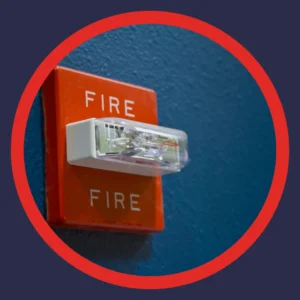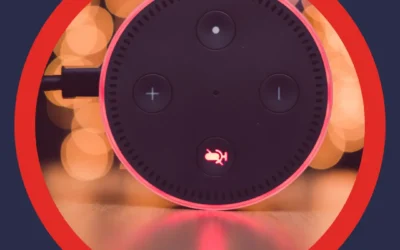Living with hearing loss brings many challenges, but safety shouldn’t be one of them. From home to work to public spaces, staying safe with hearing loss is entirely possible. With the right tools, preparation, and support, you can protect yourself and those around you. This guide provides practical tips, detailed strategies, and helpful resources to enhance safety and improve your quality of life.
Understand how avoiding hearing tests could make the problem worse.
Why Hearing Loss Affects Safety
Hearing is one of our primary senses for detecting danger. It helps us respond to alarms, sirens, footsteps, and spoken warnings. When hearing declines, you may miss important sounds that signal risk or alert you to emergencies.
Even a mild hearing loss can disrupt your spatial awareness, reaction time, and sense of surroundings. Everyday activities become more difficult and potentially dangerous without clear sound input. Staying safe with hearing loss requires recognizing these risks and taking steps to minimize them.

The Connection Between Hearing Loss and Falling
Falls are one of the most serious consequences of untreated hearing loss. Research shows a strong link between hearing loss and balance problems.
Here’s what you should know:
- Even mild hearing loss increases your risk of falling. A 25-decibel loss can triple fall risk.
- For every additional 10-decibel hearing loss, fall risk increases by 1.4 times.
- Hearing helps you stay balanced by improving spatial orientation and environmental awareness.
- Hearing aids can significantly reduce your fall risk by keeping you aware of approaching people, obstacles, and sudden movements.
Wearing your hearing aids consistently throughout the day can help protect your mobility and independence.
How to Make Your Home Safer
Your home should be your safest environment, but hearing loss can create vulnerabilities. With a few adjustments, you can maintain a secure and comfortable living space.

Add Multi-Sensory Alarm Systems
Standard alarms may not be effective if you can’t hear high-pitched sounds. Consider installing alarms with visual and tactile alerts.
- Install smoke detectors with bright flashing lights that activate when smoke is detected.
- Use bed shaker devices that vibrate your mattress or pillow during emergencies at night.
- Choose carbon monoxide detectors that flash lights or send alerts to your mobile device.
- Set your smartphone to provide both light and vibration notifications for emergency alerts.
These alarms can provide a life-saving advantage during emergencies when sound alone isn’t enough.
Create a Home Emergency Plan
In an emergency, quick action is essential. Developing a clear and simple plan can make all the difference.
- Identify and map out all exit routes in your home.
- Choose a designated meeting spot outside your home for family members.
- Keep emergency contact numbers written down and saved in your phone.
- Make sure everyone in your household knows how to help if you don’t respond to sound-based warnings.
Practice your plan regularly so you feel confident responding during a real emergency.
Keep Communication Devices Nearby
Having a phone within reach can be critical during an emergency.
- Keep your phone by your bedside while you sleep.
- Use amplified phones with visual alerts for missed calls and messages.
- Enable emergency notifications on your device for local weather and disaster alerts.
- Store your emergency contacts in a favorites list for easy access.
These simple habits help ensure help is always just a call or text away.
Explore these tips for communicating if you have hearing loss.
Personal Devices That Support Safety
Many devices can make everyday life safer and more manageable for people with hearing loss.
Wear Medical Identification Accessories
Letting others know you have hearing loss can prevent confusion during emergencies.
- Medical ID bracelets clearly communicate your condition to first responders.
- Seatbelt covers labeled with “Hard of Hearing” alert emergency personnel in case of a car accident.
- Lanyards or pins with clear wording let people know you may not hear them.
These tools give others important context and help avoid misunderstandings in high-stress situations.
Consider Service Animals for Alerts
Service animals trained to assist individuals with hearing loss can alert you to sounds you might miss.
- They can signal you when the doorbell rings, the smoke alarm goes off, or your phone vibrates.
- Service animals offer comfort, companionship, and a sense of security.
- These animals are trained to help you maintain independence and awareness in many environments.
Service animals can provide an extra layer of support and safety every day.
Always Use Your Hearing Aids
Hearing aids are one of the most effective tools for maintaining safety and environmental awareness.
- Wear your hearing aids consistently from morning until bedtime.
- Keep them charged or carry spare batteries so they’re ready when needed.
- Clean your devices regularly to ensure they work effectively.
By using your hearing aids daily, you’ll improve your ability to respond quickly to sounds around you.
Find out more about Medicare hearing aid coverage.
Staying Safe in Public Spaces
Public places can present safety challenges for those with hearing loss. However, small adjustments can help you navigate these spaces confidently.
Tips to enhance public safety include:
- Visit stores or public venues during quieter hours to reduce background noise and improve communication.
- Watch for visual signage, especially in transportation centers, hospitals, and emergency shelters.
- Ask for help when needed. Staff members can provide directions or information in writing.
- Use mobile apps that offer real-time captioning for conversations or announcements.
Taking extra steps to prepare for public outings can boost your comfort and safety.
Driving Safely with Hearing Loss
Driving with hearing loss requires some additional awareness and preparation. Fortunately, many people with hearing loss drive safely every day.
Tips for safer driving include:
- Always wear your hearing aids while driving to hear sirens, horns, and other traffic cues.
- Use wide-angle or panoramic rear-view mirrors to improve visual awareness of your surroundings.
- Avoid distractions in the car, such as loud music or phone calls.
- Keep windows closed to reduce competing background noise.
Being proactive about safety can help you drive confidently and stay in control.
Improving Workplace Safety
Many jobs depend on clear communication and environmental awareness. Hearing loss shouldn’t limit your workplace success or safety.
Improve safety at work with these strategies:
- Request alarms and alerts that include flashing lights or vibrations.
- Use assistive listening devices that enhance sound clarity in meetings or conversations.
- Inform coworkers and supervisors about your hearing needs so they can communicate effectively.
- Position your workspace in a location with minimal background noise.
By making these adjustments, you’ll stay safer, more productive, and better connected at work.
Preparing for Emergencies
Emergencies happen without warning. Being prepared can reduce stress and increase your ability to respond.
Steps to get ready include:
- Create an emergency kit with water, nonperishable food, flashlight, medications, and spare hearing aid batteries.
- Set up text-based emergency alerts on your phone or smart devices.
- Keep a backup communication method available, like a notepad or captioning app.
- Share your emergency plan with family, neighbors, and trusted friends.
Preparation ensures you can act quickly and confidently in any emergency.

Enhancing Home Security with Technology
Modern technology offers added security for individuals with hearing loss.
Consider adding the following tools:
- Video doorbells that send alerts to your phone when someone approaches your home.
- Motion-sensor lighting that illuminates dark areas automatically.
- Security systems that send visual and vibratory alerts to alert you of suspicious activity.
- Cameras that allow remote viewing and provide peace of mind when you’re away.
These upgrades improve home safety and help you feel more secure.
Regular Hearing Exams: A Key to Long-Term Safety
Your hearing health changes over time. Regular hearing exams help you stay ahead of those changes.
Reasons to schedule regular check-ups:
- Detect hearing loss early before it becomes a safety issue.
- Update your hearing aid settings to match your current needs.
- Address any ear health concerns like wax buildup or infections.
- Learn about new hearing technology that enhances safety and comfort.
Routine exams support both hearing health and overall well-being.
Discover all about hearing tests.
Real-Life Safety Tips for Everyday Use
These extra tips can help you protect yourself throughout daily life:
- Know your home layout – Familiarize yourself with all exit routes and emergency equipment locations.
- Use smart door systems – These systems alert your smartphone when someone rings your doorbell.
- Install motion-sensor lights – These lights help guide your way during nighttime emergencies.
- Add lights to fire alarms – Flashing lights offer visual warnings in case of fire.
- Inform your neighbors – Let nearby residents know about your hearing loss in case you need help.
- Keep a stocked emergency kit – Include essentials like food, water, flashlight, medications, and batteries.
- Have a trusted emergency contact – Choose someone who understands your safety needs and can check on you.
- Wear a medical alert device – These devices provide fast access to help when seconds count.
- Stay connected with your phone – Keep it charged and nearby at all times.
- Use temporary car signs – Display a removable sign to alert first responders about your hearing loss when needed.
Each of these steps adds a valuable layer of protection to your daily routine.
Take Control of Your Safety Today
Staying safe with hearing loss is about more than alarms and devices. It’s about taking control of your environment, preparing for emergencies, and making smart choices every day.
If you or a loved one has hearing loss, now is the time to act. Schedule a hearing exam, explore safety solutions, and get the support you need to live confidently.
Contact American Hearing + Audiology today to schedule your hearing evaluation and discover personalized care options that keep you safe and connected.



